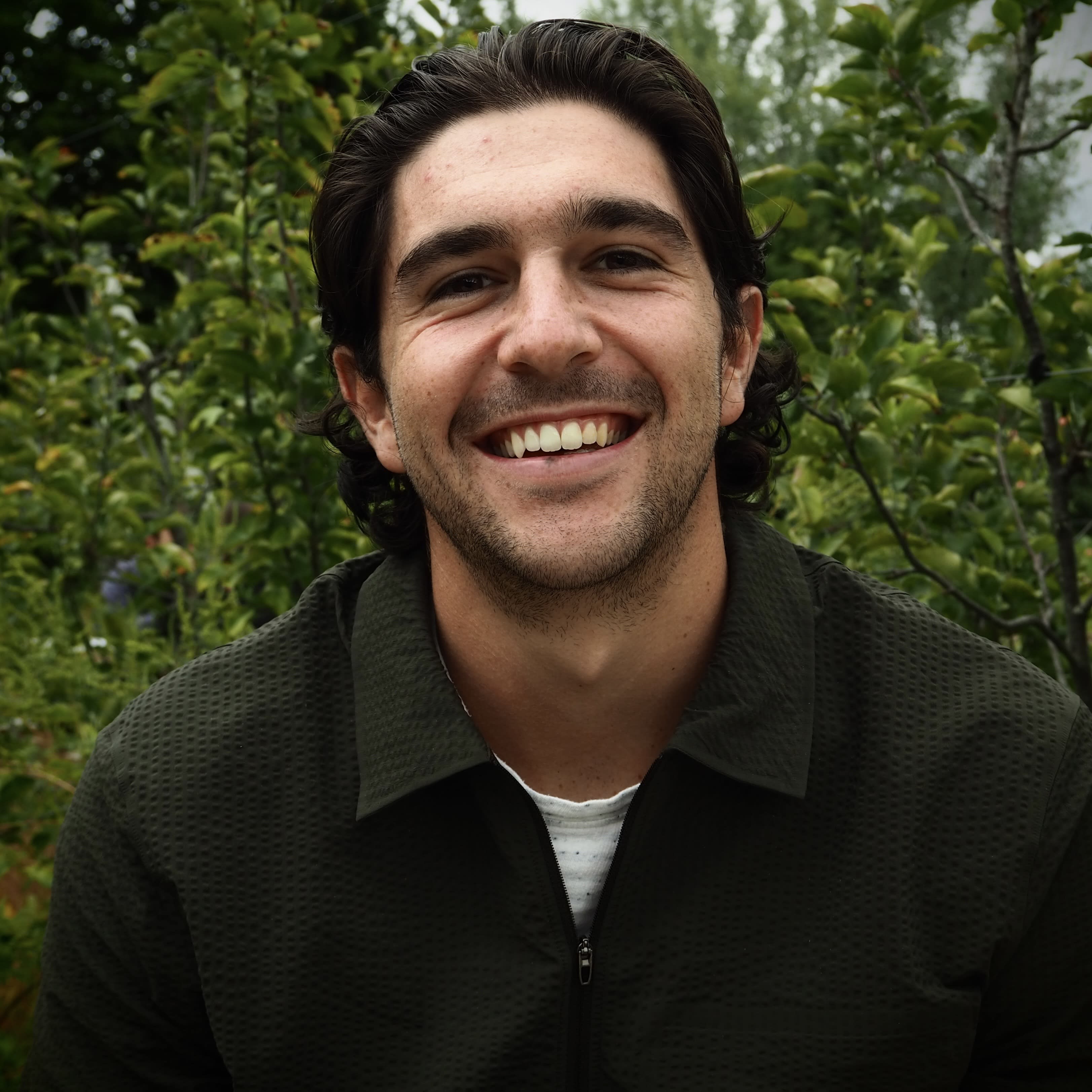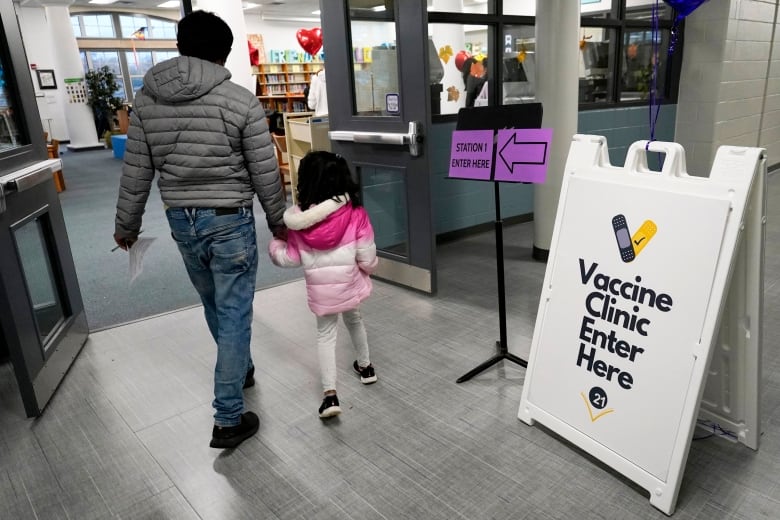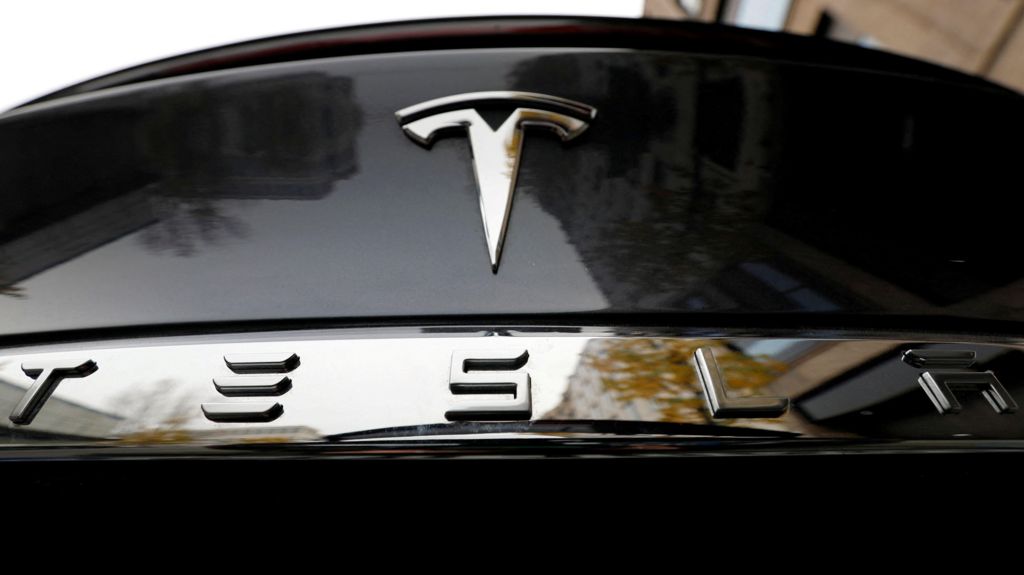
Wed, April 24, 2024 at 9:35 AM EDT
Diana Grimaldos keeps getting the same questions from her kids.
“Is the virus gone? Has the virus gone away?”
Her seven-year-old daughter, Katalina, has always been an anxious child — but it got much worse during the pandemic.
“She worries,” said Grimaldos, who lives in Toronto.
Katalina’s anxiety was especially high during lockdown. Although seeing her parents get their COVID-19 vaccines helped, along with going back to school in person, “she’s still very fearful,” said her mother.
The meteoric rise in mental health issues among children throughout the pandemic is all too familiar for many parents — backed up by study after study and reflected in the practices of health-care providers across Canada.
The best medicine for many children, pediatric experts say, is to restore normalcy in their lives, while staying safe from COVID-19 infection.
Now that Health Canada has approved Canada’s first coronavirus vaccine for kids aged five to 11, many parents and children’s health-care providers see light at the end of the tunnel.


The pandemic’s effect on kids extends beyond the threat of COVID-19 making them sick, said Dr. Eddsel Martinez, a pediatrician in Winnipeg and member of the Canadian Paediatric Society’s public advisory committee.
The public health measures that had to be taken to save lives have led to isolation, economic insecurity and parental stress, which are all “terrible for mental health,” he said.
“We’ve seen an increase in all sorts of mental health issues, including anxiety, depression, eating disorders, substance use and abuse.”
Children, in general, are resilient, Martinez said. For many, a return to regular activities, including school, birthday parties, sleepovers and visits with grandparents will do wonders.
“All those things are extremely important for mental health,” he said. “The vaccine is the way that we can get there.”


Many kids are also acutely aware of the fact that they can carry the COVID-19 infection and make someone they love ill, both parents and doctors say.
Grimaldos’s husband is immunocompromised and Katalina worries about making her dad sick, especially when there’s a COVID outbreak at her school.
Her mother tries to reassure her and “remove that guilt.”
But even at outdoor family gatherings where all the adults are vaccinated, “she feels more comfortable with the mask than without it,” Grimaldos said.
That’s a big emotional burden for a child to carry, said Dr. Anna Banerji, a pediatric infectious disease specialist with the Dalla Lana School of Public Health at the University of Toronto.
The children’s vaccine can not only reduce the risk of kids getting really sick, but also address “the worry about COVID and what’s going to happen next,” Banerji said.
“‘Am I going to get sick? Am I going to transmit this to my family members?’ That’s a huge stress,” she said.
When Health Canada and the National Advisory Committee on Immunization (NACI) decide whether or not to approve a vaccine, the key questions they must answer are whether the vaccine is safe and effective and whether the benefits outweigh any risks.
In the case of COVID-19, mental health has to be part of that discussion, said Dr. Caroline Quach-Thanh, a pediatric infectious diseases specialist and medical microbiologist at Chu Ste. Justine in Montreal.
“What you have to look at is the burden of illness. And the burden of illness includes not only the medical complications but also all the cross-collateral damages that occur,” said Quach-Thanh, who is also a former chair of NACI.
The recommendations released by NACI on Friday concluded that Pfizer-BioNTech’s vaccine was not only safe and effective in protecting children from illness, but also said that children are “at risk of collateral harms of the COVID-19 pandemic. Prolonged schooling disruptions, social isolation, and reduced access to academic and extra-curricular resources have had profound impact on the mental and physical well-being of children and their families.”
Pfizer-BioNTech’s COVID-19 vaccine is the first one approved for use in children ages five to 11 in Canada. The federal government says there’ll be enough vaccine shipments to provide a first dose to every child. 3:36
The U.S. Food and Drug Adminstration (FDA) and the Centers for Disease Control and Prevention (CDC) came to similar conclusions when they approved Pfizer’s vaccine for American children — a move that was applauded by the American Academy of Pediatrics (AAP).
“The numbers are trickling in now that [show] the COVID pandemic has really resulted in significant psychosocial stressors on children and families,” said Dr. Arwa Nasir, professor of pediatrics at University of Nebraska Medical Center and member of the AAP.
“We have numbers now to indicate an increase in the number of emergency room visits for mental health issues, suicide attempts,” she said.
That data backs up what pediatricians feared, Nasir said.
“We knew that the stressors associated with the pandemic, all the way from, you know, the illness itself, the death of family members, the quarantine, the interruption of school … we knew that this is not going to be good.”
The alarming rise in mental health issues so severe that they require a trip to the hospital is also happening on this side of the border, said Dr. Michael Cheng, a child psychiatrist at CHEO in Ottawa (formerly the Children’s Hospital of Eastern Ontario).
“We are overloaded in terms of mental health issues,” Cheng said. “Kids have gotten more stressed, anxious, depressed, suicidal during the pandemic and now they’re just to the point they’re presenting to emerg,” Cheng said.
Part of that is due to the interruption of health-care services during the pandemic, so people delayed getting treatment for both physical and mental health problems and they got worse, he said. The other part is an increase in children experiencing psychological distress.
“Our wait lists have exploded,” Cheng said.
The good news, he said, is that if kids can get back to normal life, many will recover and be OK.
“Whenever you have a stress on a population … most people will recover from that stress,” he said. “Hopefully 80, 90 per cent of people will manage to move on.”


In the U.S., children have been getting COVID-19 vaccinations for a couple of weeks. While Nasir has been providing information to many families who are hesitant to get the vaccine, she’s also families with kids who are “just so happy” to get the shot.
“This is a happy, empowering, good adjustment feeling that … can be very helpful to their mental health,” Nasir said.
“[Kids feel like] ‘I’m not like a victim to this. I’m doing something about it … and I’m participating not only in my wellness but also in the community’s wellness.'”
That’s how Diana Grimaldos hopes her daughter will feel when she gets her vaccine soon.
“I think it will give her a sense of security, for sure.”
|
|


Oil companies planning to ship crude on the expanded Trans Mountain pipeline in Canada are concerned that the project may not begin full service on May 1 but they would be nevertheless obligated to pay tolls from that date.
In a letter to the Canada Energy Regulator (CER), Suncor Energy and other shippers including BP and Marathon Petroleum have expressed doubts that Trans Mountain will start full service on May 1, as previously communicated, Reuters reports.
Trans Mountain Corporation, the government-owned entity that completed the pipeline construction, told Reuters in an email that line fill on the expanded pipeline would be completed in early May.
After a series of delays, cost overruns, and legal challenges, the expanded Trans Mountain oil pipeline will open for business on May 1, the company said early this month.
“The Commencement Date for commercial operation of the expanded system will be May 1, 2024. Trans Mountain anticipates providing service for all contracted volumes in the month of May,” Trans Mountain Corporation said in early April.
The expanded pipeline will triple the capacity of the original pipeline to 890,000 barrels per day (bpd) from 300,000 bpd to carry crude from Alberta’s oil sands to British Columbia on the Pacific Coast.
The Federal Government of Canada bought the Trans Mountain Pipeline Expansion (TMX) from Kinder Morgan back in 2018, together with related pipeline and terminal assets. That cost the federal government $3.3 billion (C$4.5 billion) at the time. Since then, the costs for the expansion of the pipeline have quadrupled to nearly $23 billion (C$30.9 billion).
The expansion project has faced continuous delays over the years. In one of the latest roadblocks in December, the Canadian regulator denied a variance request from the project developer to move a small section of the pipeline due to challenging drilling conditions.
The company asked the regulator to reconsider its decision, and received on January 12 a conditional approval, avoiding what could have been another two-year delay to start-up.





|
|


Tesla has announced its profits fell sharply in the first three months of the year to $1.13bn (£910m), compared with $2.51bn in 2023.
It caps a difficult period for the electric vehicle (EV) maker, which – faced with falling sales – has announced thousands of job cuts.
Boss Elon Musk remains bullish about its prospects, telling investors the launch of new models would be brought forward.
Its share price has risen but analysts say it continues to face significant challenges, including from lower-cost rivals.
The company has suffered from falling demand and competition from cheaper Chinese imports which has led its stock price to collapse by 43% over 2024.
Figures for the first quarter of 2024 revealed revenues of $21.3bn, down on analysts’ predictions of just over $22bn.
But the decision by Tesla to bring forward the launch of new models from the second half of 2025 boosted its shares by nearly 12.5% in after-hours trading.
It did not reveal pricing details for the new vehicles.
However Mr Musk made clear he also grander ambitions, touting Tesla’s AI credentials and plans for self-driving vehicles – even going as far as to say considering it to be just a car company was the “wrong framework.”
“If somebody doesn’t believe Tesla is going to solve autonomy I think they should not be an investor,” he said.
Such sentiments have been questioned by analysts though, with Deutsche Bank saying driverless cars face “technological, regulatory and operational challenges.”
Some investors have called for the company to instead focus on releasing a lower price, mass-market EV.
However, Tesla has already been on a charm offensive, trying to win over new customers by dropping its prices in a series of markets in the face of falling sales.
It also said its situation was not unique.
“Global EV sales continue to be under pressure as many carmakers prioritize hybrids over EVs,” it said.
Despite plans to bring forward new models originally planned for next year the firm is cutting its workforce.
Tesla said it would lose 3,332 jobs in California and 2,688 positions in Texas, starting mid-June.
The cuts in Texas represent 12% of Tesla’s total workforce of almost 23,000 in the area where its gigafactory and headquarters are located.
However, Mr Musk sought to downplay the move.
“Tesla has now created over 30,000 manufacturing jobs in California!” he said in a post on his social media platform X, formerly Twitter, on Tuesday.
Another 285 jobs will be lost in New York.
Tesla’s total workforce stood at more than 140,000 late last year, up from around 100,000 at the end of 2021, according to the company’s filings with US regulators.
The car firm is also facing other issues, with a struggle over Mr Musk’s compensation still raging on.
On Wednesday, Tesla asked shareholders to vote for a proposal to accept Mr Musk’s compensation package – once valued at $56bn – which had been rejected by a Delaware judge.
The judge found Tesla’s directors had breached their fiduciary duty to the firm by awarding Mr Musk the pay-out.
Due to the fall in Tesla’s stock value, the compensation package is now estimated to be around $10bn less – but still greater than the GDP of many countries.
In addition, Tesla wants its shareholders to agree to the firm being moved from Delaware to Texas – which Mr Musk called for after the judge rejected his payday.





|
|
Tech stocks rose on Wednesday, outstripping the broader market as investors welcomed Tesla’s (TSLA) cheaper car pledge and waited for the next rush of corporate earnings.
The Nasdaq Composite (^IXIC) rose roughly 0.6%, coming off a sharp closing gain. The S&P 500 (^GSPC) was up 0.2%, continuing a rebound from its longest losing streak of 2024, while the Dow Jones Industrial Average (^DJI) fell 0.1%.
Tesla shares jumped nearly 12% after the EV maker’s vow to speed up the launch of more affordable models eclipsed its quarterly earnings and revenue miss. That cheered up investors worried about growth amid a strategy shift to robotaxis and the planned cancellation of a cheaper model.
The results from the first “Magnificent Seven” to report have intensified the already high hopes for Big Tech earnings, that the megacaps can revive the rally in stocks they powered. The spotlight is now on Meta’s (META) report due after the market close, as the Facebook owner’s shares rose after the Senate voted for a potential ban on rival TikTok. Microsoft (MSFT) and Alphabet (GOOG) next up on Thursday.
Meanwhile, Boeing (BA) reported better than expected first quarter results before the opening bell with a loss per share of $1.13, narrower than the $1.72 estimated by Wall Street. Shares rose about 2% in morning trade.
Live6 updates









Remnants of bird flu virus found in pasteurized milk, FDA says
Mayor's youth advisory council seeks submissions for art gala – SooToday




Bird flu virus found in grocery milk as officials say supply still safe
Random: We’re In Awe of Metaphor: ReFantazio’s Box Art




Taxes should not wag the tail of the investment dog, but that’s what Trudeau wants
Amid concerns over ‘collateral damage’ Trudeau, Freeland defend capital gains tax change
Peel police chief met Sri Lankan officer a court says ‘participated’ in torture – Global News
An exhibition with a cause: Montreal's 'Art by the Water' celebrates 15 years – CityNews Montreal